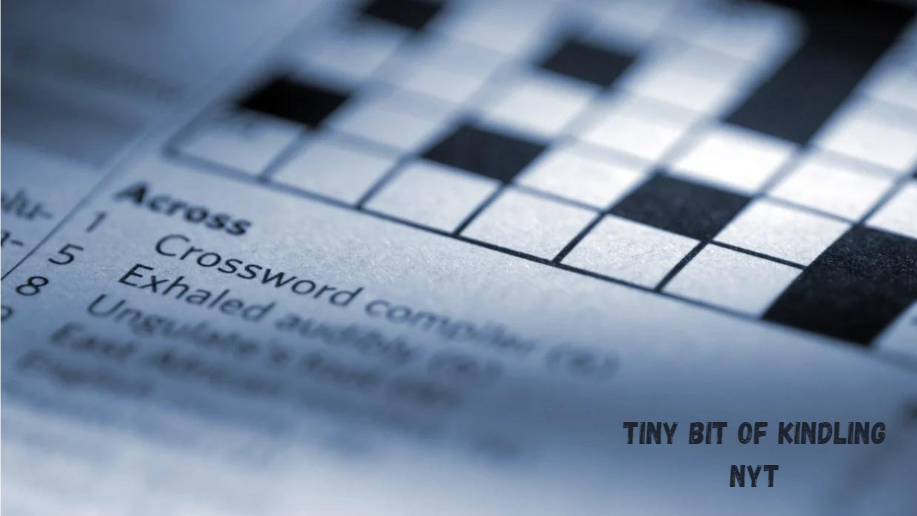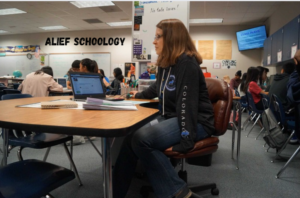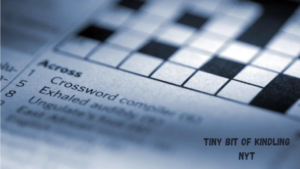Angela Peery Delta: Navigating Airline Policies and Public Perception
Contents
- 1 Introduction
- 2 Background: The Incident
- 3 The Public Response: A Divided Opinion
- 4 Airline Policies: Balancing Safety and Convenience
- 5 Passenger Rights and Responsibilities
- 6 Delta’s Response: Addressing the Issue
- 7 Broader Implications for the Airline Industry
- 8 FAQs
- 8.1 What was Angela Peery’s complaint about Delta Airlines?
- 8.2 How did Delta respond to Angela Peery’s complaint?
- 8.3 What are the safety protocols for flight attendants regarding personal device use?
- 8.4 Why did Angela Peery’s complaint gain so much attention on social media?
- 8.5 What can passengers do if they have concerns about airline safety?
- 9 Conclusion
Introduction
In an age where air travel is as common as commuting by car, the policies and practices of airlines are under constant scrutiny. The story of “Angela Peery Delta” has become a focal point in the debate over airline safety and the use of personal devices by flight attendants. This incident has sparked discussions about passenger rights, airline policies, and the power of social media to shape public opinion.
Angela Peery’s complaint about Delta flight attendants using their phones during a flight has highlighted various aspects of the aviation industry, from safety regulations to customer service protocols. This article delves into the details of the incident, explores the broader implications for the airline industry, and offers insights into the dynamics of public perception and corporate response.
Background: The Incident
The story began when Angela Peery, a passenger on a Delta flight, observed flight attendants using their personal phones during the flight. Concerned about the potential safety implications, she reported this behavior to Delta Airlines, citing it as a violation of safety protocols. In response, Delta left an apologetic voicemail for Angela, acknowledging the policy against personal phone use by flight attendants.
Delta’s Safety Protocols
Delta Airlines, like all major carriers, has strict policies regarding the use of personal electronic devices by flight attendants. These policies are in place to ensure that flight attendants remain focused on their duties and are prepared to respond to any emergencies that may arise. The use of personal phones during critical phases of flight, such as takeoff and landing, is generally prohibited.
Angela Peery’s Actions
Angela Peery’s decision to report the incident was motivated by a genuine concern for safety. In her view, the use of personal phones by flight attendants could distract them from their responsibilities and compromise passenger safety. Her complaint was aimed at ensuring that Delta adheres to its safety protocols and maintains high standards of service.
The Public Response: A Divided Opinion
The incident quickly gained attention on social media, with reactions ranging from support for Angela’s stance to criticism of her approach. This polarized response highlights the complexity of the issue and the diverse perspectives of passengers and airline professionals.
Support for Angela Peery
Many individuals supported Angela’s actions, arguing that airline safety should be the top priority and that any deviation from established protocols should be addressed. They appreciated Angela’s vigilance and her willingness to speak out about a potential safety concern.
Criticism of Angela Peery
Conversely, Angela faced criticism from those who felt that her response was excessive. Some argued that the use of phones by flight attendants may not pose a significant risk and that her complaint could be seen as an overreaction. Critics also pointed out that in-flight duties can vary, and flight attendants may have legitimate reasons to use their phones.
Social Media’s Role
Social media platforms played a significant role in amplifying the debate. The story of “Angela Peery Delta” was shared widely, with users expressing their opinions and engaging in discussions about airline safety and passenger rights. This widespread attention highlights the power of social media to influence public perception and hold corporations accountable.
Airline Policies: Balancing Safety and Convenience
The incident raises important questions about the balance between safety and convenience in the airline industry. Airlines must navigate a complex landscape of regulations, customer expectations, and operational challenges to provide safe and efficient services.
Regulatory Framework
The Federal Aviation Administration (FAA) sets stringent safety standards for airlines operating in the United States. These regulations cover various aspects of flight operations, including the use of personal electronic devices by crew members. Airlines are required to comply with these regulations to ensure the safety of passengers and crew.
Airline Policies on Personal Devices
Most airlines have clear policies regarding the use of personal devices by flight attendants. These policies are designed to minimize distractions and ensure that flight attendants are attentive to their duties. However, the enforcement of these policies can vary, leading to incidents like the one involving Angela Peery.
The Role of Technology
Advancements in technology have introduced new tools and resources for flight attendants to enhance passenger service and safety. Airlines must strike a balance between leveraging these technologies and ensuring that they do not interfere with critical safety tasks. This requires continuous evaluation and adaptation of policies to address emerging challenges and opportunities.
Passenger Rights and Responsibilities
The “Angela Peery Delta” incident underscores the importance of passenger rights and responsibilities in the context of air travel. Understanding these rights and responsibilities can empower passengers to advocate for their safety and contribute to a positive travel experience.
Passenger Rights
Passengers have the right to expect safe and reliable air travel. This includes adherence to safety protocols by airline staff and the provision of clear information about any issues that may arise during a flight. Passengers can report concerns to airline representatives or relevant authorities to ensure that their rights are upheld.
Passenger Responsibilities
Passengers also have responsibilities when traveling by air. This includes adhering to safety instructions provided by flight attendants and being respectful of airline staff and fellow passengers. By fulfilling these responsibilities, passengers can contribute to a safe and harmonious travel environment.
The Role of Communication
Effective communication between passengers and airline staff is crucial in addressing concerns and ensuring a positive travel experience. Passengers should feel comfortable raising concerns with flight attendants or other airline representatives, and airlines should be responsive to feedback and committed to resolving issues.
Delta’s Response: Addressing the Issue
Delta’s response to Angela Peery’s complaint reflects the airline’s commitment to safety and customer service. By acknowledging the issue and providing an apologetic voicemail, Delta demonstrated its willingness to address concerns and maintain transparency with its passengers.
Corporate Responsibility
Delta Airlines, as a leading carrier, has a responsibility to uphold high standards of safety and service. This includes addressing any deviations from established protocols and taking corrective action when necessary. Delta’s response to Angela’s complaint illustrates its dedication to fulfilling these responsibilities.
Customer Feedback and Improvement
Customer feedback is a valuable tool for airlines to identify areas for improvement and enhance the travel experience. By listening to passengers and addressing their concerns, airlines can refine their policies and procedures to better meet the needs of travelers.
Building Trust and Loyalty
Transparency and accountability are key factors in building trust and loyalty among passengers. By responding promptly and effectively to concerns, airlines can demonstrate their commitment to customer satisfaction and foster long-term relationships with their passengers.
Broader Implications for the Airline Industry
The “Angela Peery Delta” incident has broader implications for the airline industry, highlighting the need for ongoing evaluation and adaptation of policies and practices to address emerging challenges and opportunities.
The Impact of Public Perception
Public perception plays a significant role in shaping the reputation of airlines. Incidents like the one involving Angela Peery can influence how passengers view an airline’s commitment to safety and customer service. Airlines must be proactive in managing public perception by addressing concerns transparently and maintaining high standards of service.
The Role of Media and Social Media
Media coverage and social media platforms have a profound impact on the dissemination of information and the shaping of public opinion. Airlines must be prepared to navigate the fast-paced and often unpredictable landscape of media and social media to manage their reputation effectively.
The Importance of Continuous Improvement
The airline industry is constantly evolving, with new technologies, regulations, and customer expectations emerging regularly. Airlines must be committed to continuous improvement, adapting their policies and practices to meet the changing needs of passengers and maintain their competitive edge.
FAQs
What was Angela Peery’s complaint about Delta Airlines?
Angela Peery complained about Delta flight attendants using their personal phones during a flight, citing it as a potential safety violation.
How did Delta respond to Angela Peery’s complaint?
Delta responded to Angela’s complaint with an apologetic voicemail, acknowledging the policy against personal phone use by flight attendants and expressing regret for the incident.
What are the safety protocols for flight attendants regarding personal device use?
Flight attendants are generally prohibited from using personal devices during critical phases of flight, such as takeoff and landing, to ensure their focus remains on safety duties.
Angela Peery’s complaint gained attention on social media due to the polarized reactions it elicited, with some supporting her stance on safety and others criticizing her approach as excessive.
What can passengers do if they have concerns about airline safety?
Passengers can report safety concerns to airline representatives or relevant authorities, such as the Federal Aviation Administration (FAA), to ensure their concerns are addressed.
Conclusion
The story of “Angela Peery Delta” serves as a reminder of the importance of safety, communication, and accountability in the airline industry. While the incident sparked debate and controversy, it also highlighted the need for airlines to remain vigilant in upholding safety standards and responsive to passenger concerns.
As air travel continues to play a vital role in connecting people and places, airlines must navigate the complex landscape of safety regulations, customer expectations, and public perception. By prioritizing safety, fostering open communication, and embracing continuous improvement, airlines can build trust and loyalty among passengers and ensure a positive travel experience for all.






















































Post Comment